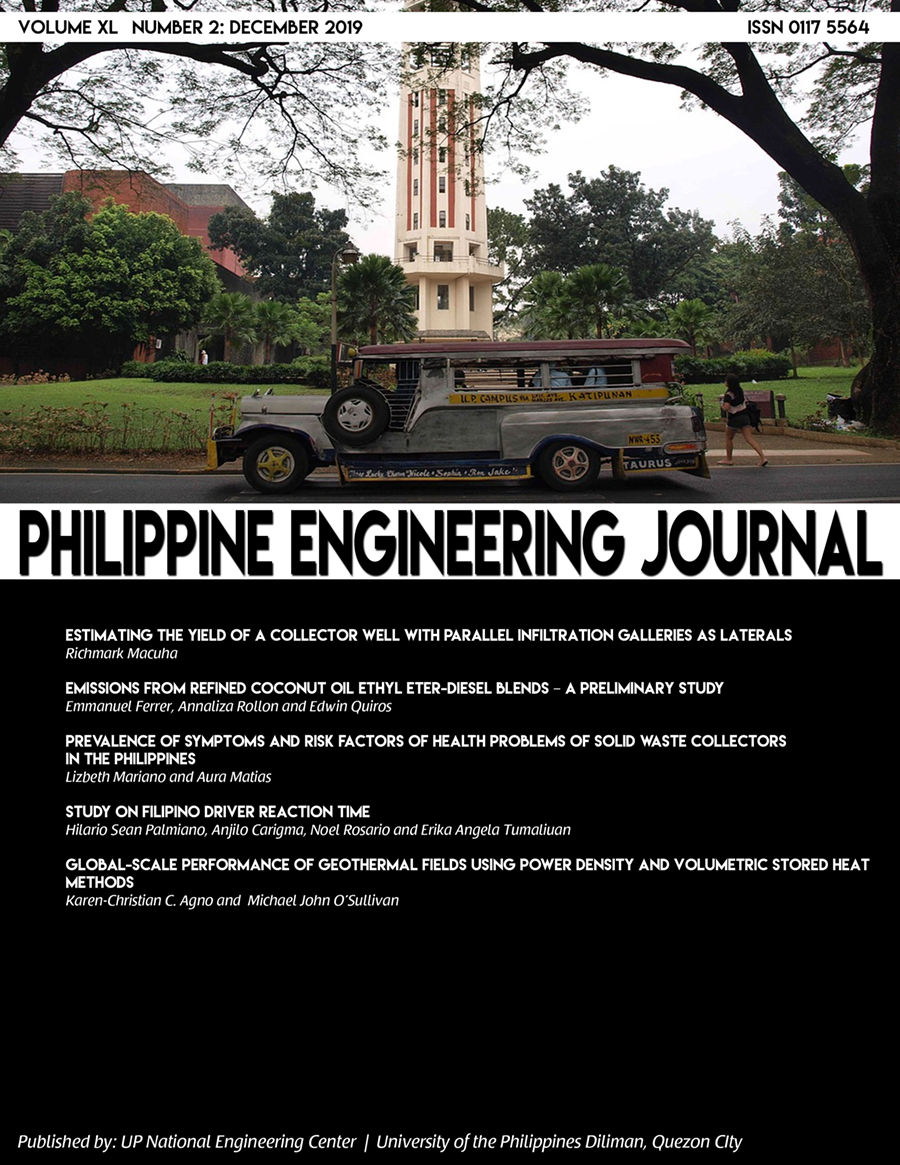Prevalence of Symptoms and Risk Factors of Health Problems of Solid Waste Collectors in the Philippines
Abstract
Abstract – Exposure to solid wastes may result to several health problems. Solid waste collection should be effectively done. However, in the Philippines, collection is done manually, exposing the solid waste collectors to health risks.
In 2017, the authors made an initial study on respiratory health problems of solid waste collectors and found out that 19.29% of them experiences its symptoms [1]. On this study, the prevalence of symptoms and risk factors of the other most common health issues among these workers: musculoskeletal, gastrointestinal, and dermatological symptoms were examined.
The study found that in terms of prevalence of symptoms, the health problems are ranked as follows: MSD (39.55%), gastrointestinal (21.54%), and lastly, dermatological (12.86%). Significant factors found for MSD are the age of the worker, educational background, volume of alcoholic drinks consumed, perception of work demand (time pressure), long walks at work, and assignment to institutional biodegradable waste route. For gastrointestinal symptoms, the significant factors are hours of sleep, volume of alcoholic drinks consumed, frequency of taking baths, and perception of community support. Lastly, for the dermatological symptoms, the significant factors are sticks of cigarettes smoked per day, perception of work demand (time pressure), perception of work difficulty, perception of community support, and assignment to institutional non-biodegradable route.
Significant risk factors can be used as guide in improving the conditions of solid waste collectors. Logistic regression models were also constructed to predict the presence/absence of each health problem.
Keywords— solid waste collectors, musculoskeletal, gastrointestinal, dermatological, risk factors, logistic regression models


